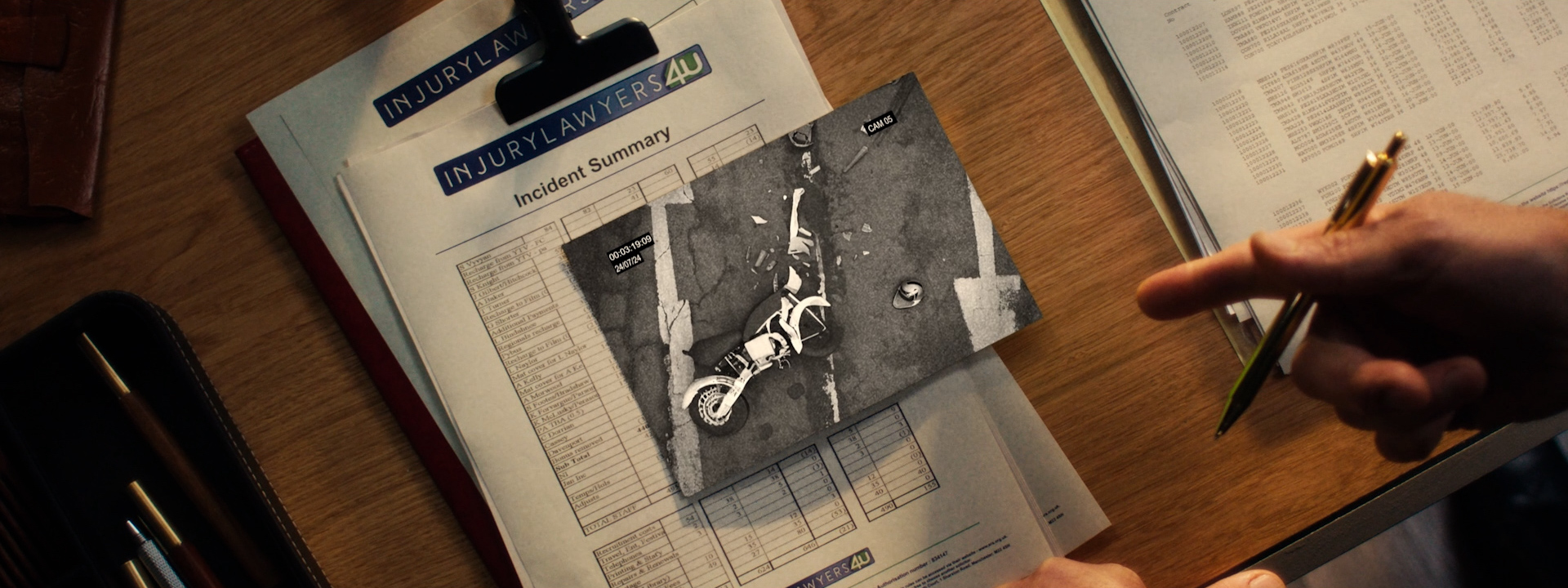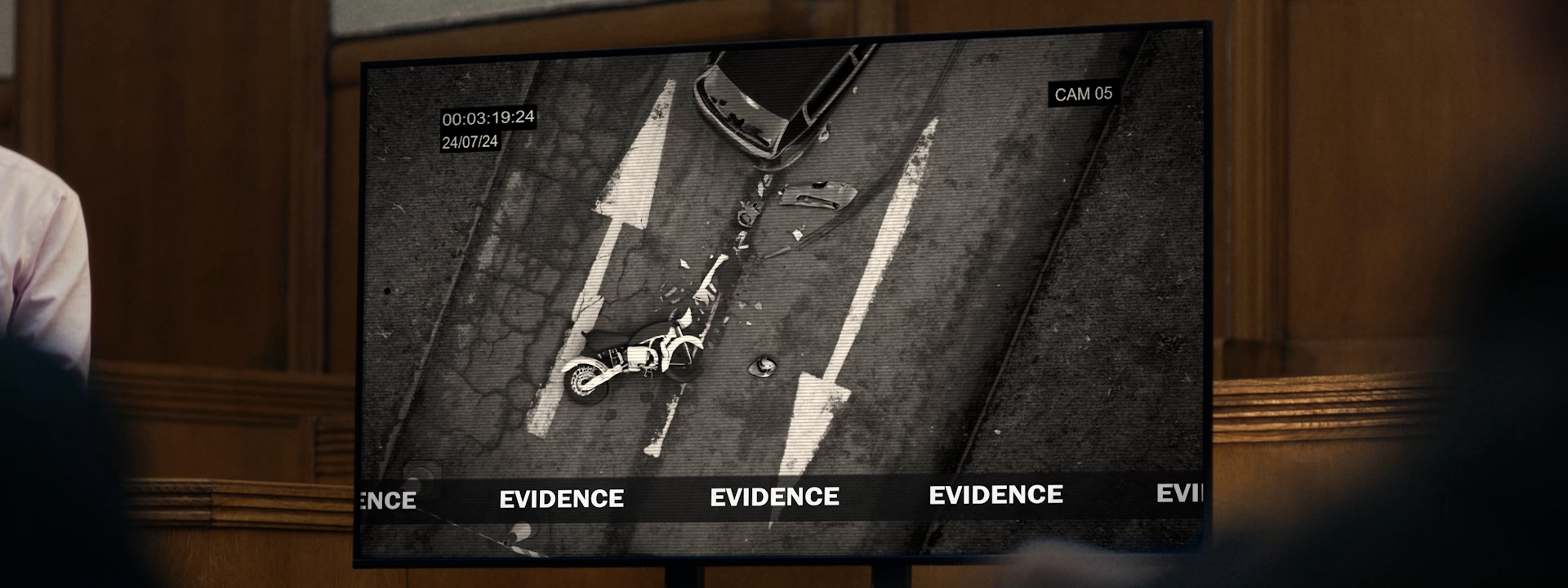Motorcycling can give you a unique sense of freedom that car drivers rarely experience. But those who choose two wheels instead of four are also far more vulnerable, often due to the carelessness or negligence of other road users.
Despite only making up one percent of road users, motorcyclists account for one in five road deaths or serious injuries. Thankfully, motorcycle casualties have reduced by around 34% since the mid-1990s. However, they are still among the most at-risk road users in the UK, with nearly 17,000 motorcyclists injured in Great Britain in 2022 alone.
If you’re a motorcyclist and you’ve been injured in a road traffic accident that wasn’t your fault, you may have grounds to claim compensation for personal injury. Here, we’ll explain everything you need to know before starting a claim.
Claiming for personal injury after a motorbike accident
To successfully claim compensation for your injuries in a motorcycle accident, you must be able to demonstrate that the accident was either fully or partially caused by another party. This could be another road user, a pedestrian, your local council if the accident was caused by a poorly maintained road, or even the manufacturer of your motorbike if the accident was caused by defective equipment.
In situations where the accident involves a hit-and-run or uninsured driver, you are still eligible to pursue a claim for compensation. However, such claims would be taken to the Motor Insurers Bureau (MIB), a government body established to provide compensation in this type of scenario.
At Injury Lawyers 4u, our expert legal team have handled thousands of compensation claims involving road traffic accidents, and are ready to help you receive the compensation you deserve. Get in touch today to discuss your accident and available options with a legal expert.
The most common motorcycle accident scenarios
Motorcyclists face unique risks on UK roads, often due to their increased exposure and lack of visibility compared to larger vehicles such as cars, buses, and lorries. Here are some of the more common motorbike accident scenarios that lead to compensation claims:
- Lane changing incidents: Collisions often happen when drivers switch lanes without spotting a motorcyclist in their blind spot.
- Visibility issues at junctions: Many accidents occur because drivers fail to notice motorcyclists at junctions or roundabouts.
- Overtaking: These accidents happen when a vehicle cuts across a motorcyclist’s path while overtaking or making turns.
- Evasive manoeuvres: Motorcyclists may crash trying to avoid hazards such as pedestrians or cyclists unexpectedly in their path.
- Road conditions: Poor road maintenance, such as potholes and loose gravel, often lead to accidents.
Accidents are generally categorised into ‘lowside’ and ‘highside’ incidents:
Lowside accidents: A lowside accident is when a motorcyclist loses grip on either wheel due to excessive braking or acceleration. Such accidents can lead to severe physical injuries, ranging from minor bruises to significant fractures. In the most severe cases, the rider can be thrown into oncoming traffic
Highside accidents: These accidents are particularly dangerous and tend to happen when the rear wheel loses traction and then suddenly regains it, or if the motorcyclist over-corrects a rear-wheel slide. When this happens, the motorbike suddenly grips and throws the rider in the opposite direction. As a result, severe injuries are generally more common in highside accidents.
What to do after a motorbike accident
In the immediate moments after a motorcycle accident, your first priority should be your health and safety. Move off the road and onto the pavement, and be sure to call an ambulance or ask a witness to call for an ambulance if your injuries are serious.
It’s important that you try to stay calm and neither lose your temper with other parties involved or admit liability. Call the police so that they can record details of the accident and manage the scene. When it’s safe to do so, exchange insurance details with the other party or parties involved, as well as any contact information. Any other evidence you can gather at this point will be extremely beneficial to your claim, including CCTV footage, photos on your phone, or statements from witnesses. Once you’re away from the scene and you feel able to, get in touch with Injury Lawyers 4u to discuss how to file a personal injury claim.
The evidence you’ll need to make a motorcycle accident claim
As we mentioned earlier, a successful claim means being able to prove that somebody else was at fault for the injuries caused by your motorcycle accident. Here is the evidence you’ll need to support your claim:
- The date, time, and specific location of the accident.
- Details of the incident, including your account of what happened and who you believe was at fault.
- Contact and insurance information, as well as the vehicle registration numbers of all parties involved.
- Any available police reports documenting the accident.
- Photos or videos from the scene, which could include photos taken by you, footage from a mounted helmet camera, dash cam footage from another driver, or CCTV from the scene.
- Contact details for any witnesses.
- Records of any medical treatment you received, whether at the scene or afterwards at the doctor’s office or hospital.
If you’re unable to gather all this information on your own, don’t worry. At Injury Lawyers 4u, our experienced legal team can assist you in collecting and organising the evidence needed to support your claim.
Time limit for making a motorbike accident claim
Typically, those beginning a claim for personal injury following a motorcycle accident have three years either from the date of the accident or from the date the related injury was first diagnosed to start a claim. However, there are some exceptions:
- If the injured person suffers from a mental incapacity that prevents them from managing their own affairs, the three-year limit is waived.
- For children under the age of 18 that are injured in a motorcycle accident, there is no time limit for parents to claim on their behalf. However, once they turn 18, they will have to pursue any personal injury claim themselves and the three-year time limit will apply.
Regardless of the time limit, starting a claim as soon after your accident as possible is the best course of action. It allows your legal team to gather as much evidence as possible while it’s still fresh, and while witness statements are most accurate.
Filing a motorcycle accident claim for another person
If a loved one has been severely injured in a motorcycle accident and can’t make a claim themselves, you can take action for them. This is especially important if they’ve suffered life-altering injuries such as significant brain trauma, major spinal injuries, or other serious conditions like paralysis or profound cognitive impairments.
As a “litigation friend”, you can step in on their behalf if you’re a close family member or have been legally appointed. By fulfilling this role, you will be helping to manage their legal matters and ensure their rights are protected during a vulnerable time.
Additionally, if the accident has tragically resulted in death, you can claim for bereavement damages and funeral costs, and also secure financial support for any dependents left behind.
Calculating compensation after a motorbike accident
If you’ve been involved in a motorcycle accident and have suffered an injury as a result, the compensation you could receive will depend on the severity of your injuries and the impact they have on your daily life. The value of your claim is split between general damages, which cover the pain and suffering caused by your injuries, and special damages.
To find out what you could receive in general damages compensation, try using our personal injury compensation calculator. This handy tool provides a guideline amount according to the specific nature of your injuries, based on Judicial College guidelines.
Additionally, you can claim for special damages. This is difficult to estimate, as special damages compensate for the financial losses and expenses you’ve incurred as a result of the motorcycle accident. This could include:
- The cost of repairing or replacing damaged gear such as your motorbike, helmet or protective clothing.
- Lost earnings if you’re either unable to work or have to take time away from work to recover.
- Medical expenses for treatments and rehabilitation.
- Travel expenses for attending treatment sessions.
- Any necessary changes made to your home
- Any costs related to ongoing care, whether provided by professionals, family or friends.
Every motorcycle accident claim is different, and our team at Injury Lawyers 4u is dedicated to assessing every aspect of your claim to maximise your compensation. Get in touch with us today to explore how we can help you achieve the compensation you deserve, to support your recovery and restore your quality of life.
Claiming for a motorbike accident caused by a hit-and-run or uninsured driver
It’s important to know that as a motorcyclist, even if you’ve been injured by a hit-and-run or uninsured driver, you still have the right to seek compensation. For both types of incidents, whether the driver fled the scene or was driving without insurance, your claim will be processed through the Motor Insurers’ Bureau (MIB). The MIB is an entity set up specifically to handle claims involving untraceable or uninsured drivers, meaning victims of such accidents can still receive compensation despite the lack of a direct party to claim against.
Our legal team at Injury Lawyers 4u has a wealth of experience in managing these types of claims. We understand the nuances of working with the MIB and will guide you through every step of the process.
Claiming compensation for a motorbike accident caused by poor road conditions
If your motorcycle accident resulted from roads that have been poorly maintained or neglected, and are unsafe as a result, you could be eligible to claim compensation against the responsible authority. For motorways and main roads, this would be National Highways, while other roads are the responsibility of local councils.
Regardless of the organisation, they have a duty to maintain the roads to ensure they are safe. That means routine inspections, fixing any issues as quickly as possible, and clearly signposting any potential hazards that can’t be repaired quickly.
Claiming compensation when you are partially responsible
You may still be eligible to claim compensation for an injury from a motorcycle accident, even if the accident was partially your fault. After all, such accidents can be complicated, and the responsibility may be shared by more than one party. At Injury Lawyers 4u, our expert personal injury solicitors can evaluate your case to determine the extent of the fault assigned to each party involved.
In cases where responsibility is shared, the compensation each party receives is split according to their share of the fault. This is known as ‘split liability’. In practice, this means that if it’s determined that you and the other party share equal responsibility, you will receive 50% of the total compensation. With this approach, even if you have a role in the accident, you can still recuperate some losses according to your level of responsibility.
Who pays motorbike accident compensation?
If your motorcycle accident claim is against another motorist, their insurance is responsible for settling your compensation. For accidents involving infrastructure like poor road surfaces, compensation might be paid by the liability insurance of the governmental or local authority in charge. In situations where the accident was caused by an uninsured or hit-and-run driver, compensation is usually provided by the Motor Insurers Bureau (MIB).
How long does a motorcycle accident claim take to resolve?
There is no fixed amount of time for motorcycle accident claims to be resolved. In most cases, claims are resolved in around six months to a year. However, the time it takes to settle your claim will depend on the severity of your injuries, the complexity of proving who is at fault, and how quickly the other responsible party admits liability.
If your injuries are severe and the long-term impact isn’t immediately clear, we may need to wait until there’s a full understanding of your ongoing medical and care requirements. This is to ensure that the compensation amount we pursue is adequate to cover your treatment, rehabilitation costs, and loss of income among other expenses. At Injury Lawyers 4u, our priority is to secure a level of compensation that meets your needs, regardless of how long it takes.
Will you need to go to court for a motorcycle accident claim?
It’s very rare for motorcycle accident claims to reach court. In fact, less than 1% of all personal injury claims end up in a courtroom. Most cases are settled through negotiations before they get to this stage. In the event that your case does go to court because the other party disputes your claim, your solicitor may ask you to appear.
Will you need to have a medical examination after your motorcycle accident?
It’s important that you have a medical assessment after a motorbike accident, even if you don’t think your injuries are severe. This will form part of the evidence that supports your claim. Additionally, if you had a pre-existing condition beforehand and the accident made the injury worse, the medical assessment will document this change.
No win, no fee
At Injury Lawyers 4u, we believe everyone should have access to justice. Therefore, we offer a ‘no win, no fee‘ payment arrangement to all our clients, which allows you to pursue a claim for compensation without risking large sums of money in the process.
To find out more about how we can help you claim for a motorcycle accident, please phone us on 0333 400 4445 or fill in our contact form and we will get back to you at your convenience.





